The Hucksters

Brief Synopsis
Cast & Crew
Jack Conway
Clark Gable
Deborah Kerr
Sydney Greenstreet
Adolphe Menjou
Ava Gardner
Film Details
Technical Specs

Synopsis
War veteran and fast-talking adman Victor Albee Norman returns to his home in New York City, determined to land a high-paying advertising job with the Kimberly Advertising Agency. During his interview with the head of the agency, the nervous Mr. Kimberly, Victor secures Kimberly's permission to take on the company's toughest client, Evans Beauty Soap, which is run by the mercurial Evan Llewellyn Evans. Victor likes the idea of Kimberly's new advertising campaign, in which twenty-five women, whose names have been selected from the social register, are to give testimonials for the soap in exchange for a donation to their favorite charity. The most important socialite on the list, Englishwoman Francis "Kay" X. Dorrance, is easily won over by Victor because she is in need of money, and she readily consents to have her publicity photograph taken. At the photographer's studio, Victor and a representative from the Kimberly agency argue over how Kay should appear, with Victor defending Kay's objections to being photographed in a sultry evening dress. The argument results in an emergency board meeting, during which Victor first becomes acquainted with Evans' unconventional business style. To illustrate his point that consumers can be shocked into paying attention to advertisements, Evans startles the board members by spitting on the table. Although Evans states his belief that a radio ad should irritate its listeners in order to be best remembered, Victor persuades him that the soap should emphasize cleanliness. Victor then dazzles Evans with a new slick, but toned-down radio ad. To celebrate their success with the Evans account, Kimberly and his wife take Victor and Kay out to the dinner club where Victor's old flame, Jean Ogilvie, is singing, but the night is almost ruined when Kimberly gets drunk. After separating from the Kimberlys, Victor and Kay spend a romantic evening together, culminating in Kay's acceptance of Victor's invitation to meet him at his favorite hotel, the Blue Penguin Inn. On the day of their rendezvous, Victor is surprised to discover that the hotel is under a new and less-than-attentive management. When Kay arrives, she takes one look at the accomodations and, misinterpreting Victor's intentions, immediately returns home. Victor continues to wait for Kay but leaves when he is summoned back to New York. There he is assigned by Evans to go to Hollywood to sign up radio personality Buddy Hare for his show. En route to Hollywood, Victor encounters Jean, and when they fail to rekindle their romance, Jean realizes that he is still in love with Kay. Victor later finds the remorseful Kay waiting for him in his bungalow and they kiss. After Victor and Kay become engaged, Victor works diligently to successfully complete his Hollywood assignment. To do this, Victor blackmails Hare's agent to force the performer to sign up with Evans. Upon returing to New York, Victor suffers a humiliating insult by Evans, who then praises him for his good work. Victor finds the insult so reprehensible that he calls Evans a tyrant, pours water on him and leaves his huckster life for good. Thinking that Kay will leave him now that he has quit, Victor sadly breaks the news to her, but she tells him that she will marry him regardless of his finances.

Director

Jack Conway
Cast

Clark Gable

Deborah Kerr

Sydney Greenstreet
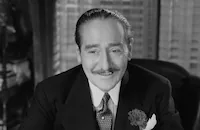
Adolphe Menjou

Ava Gardner

Keenan Wynn

Edward Arnold
Aubrey Mather
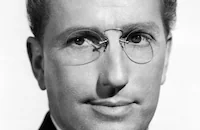
Richard Gaines

Frank Albertson

Douglas Fowley

Clinton Sundberg

Gloria Holden

Connie Gilchrist
Kathryn Card

Lillian Bronson
Vera Marshe
Ralph Bunker

Virginia Dale
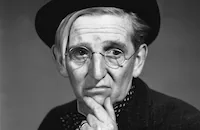
Jimmy Conlin

George O'hanlon
Ransom Sherman
Tom Stevenson
John Hiestand
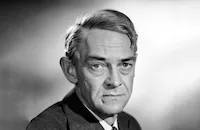
John Mcintire
Jack Rice
Robert E. O'connor
Charles Peck
Frederick Howard
Dianne Perrine
Johnny Day
Eugene Lay
Florence Stephens
Gordon Richards
Fred Sherman
Jerry Miley
Jean Ransom
Sammy Mckim
Chief Yowlachie
Edwin Cooper
Harry V. Cheshire
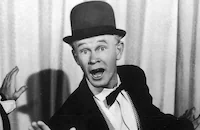
Billy Benedict
Mahlon Hamilton
Richard Abbott
Cedric Stevens
Frank Leigh
Barrett Whitelaw
Phil Dunham
Almeda Fowler
Mary Stuart
David Mckim
John Albright
Nan Bennett
Erin O'kelly
Sydney Logan
Vera Martin
Drew Demarest
Dink Freeman
Wilbur Mack
Sam Ash
Robert Skelton
Bert Davidson

Anne Nagel
Joan Valerie
Betty Callender
Theodore Von Eltz
Frank Bingman
Joe Kearns
Cathy Lewis
Lillian Randolph
Henry Blair

John George
Hoffis Better
Charles Abraham
Joe Sawaya
David Merritt
Frank Scannell
David Martin Jones
Doris Stone
Nellie Farrell
Madge Erwin
Vangie Beilby
Harriet Brest
Tiny Jones
Violet Seton
Agnes Steele
Eddie Marr
Heinie Conklin
Byron Morgan

Marie Windsor
Crew
Edward Chodorov
Luther Davis
Jack Dawn
Cedric Gibbons
A. Arnold Gillespie
Sydney Guilaroff
Lennie Hayton
Arthur Hornblow Jr.
Irene
Urie Mccleary
Jack D. Moore
Warren Newcombe
Buddy Pepper
Harold Rosson
Douglas Shearer
Sidney Sidman
Frank Sullivan
John Waters
George Wells
Edwin B. Willis

Videos
Movie Clip






Film Details
Technical Specs

Articles
The Hucksters
Adventure (1945), Gable's first film after his return from serving in World War II, co-starring Greer Garson, had been a disaster. He had no chemistry on or off screen with Garson. Still mourning the death of his wife Carole Lombard, Gable was moody, out of shape, and drinking heavily. He wouldn't appear in another film for 18 months, and when he did, he demanded approval of his co-stars and material. The Hucksters was far from his idea of a Gable-worthy vehicle. For one thing, his character Vic Norman was a promiscuous, unprincipled heel. For another, his love interest was an adulteress. Gable demanded changes and after months of script revisions Gable got in shape, his character developed some scruples, and the married mistress became a virtuous war widow.
To play the widow, MGM imported Deborah Kerr, a young Scottish actress. Kerr had been acting in British films since 1941, and had recently made a splash playing a conflicted nun in Michael Powell's elegant drama, Black Narcissus (1947). MGM head Louis B. Mayer himself came up with the advertising line to introduce Kerr to America, and to make sure her name was pronounced correctly: "Deborah Kerr (rhymes with 'star.')" To mollify Gable, Kerr agreed to do a screen test for The Hucksters. When she arrived at the studio with her husband, British war hero Tony Bartley, Gable greeted Bartley enthusiastically. They had met during the war, when Bartley lectured American airmen. Gable not only gave his approval to Kerr, but on the first day of shooting he sent six dozen roses to her dressing room. Kerr was always grateful for his thoughtfulness. "He did everything possible to put me at my ease," she said, "and was a man utterly without regard for himself as a film technician, or for his status in movies."
Gable was equally gracious to Ava Gardner, an MGM starlet who had played bit parts for years before getting her first important role (on loan-out to Universal) in The Killers (1946). Finally, MGM realized what it had in Gardner, and cast her in The Hucksters as Gable's old flame, a sexy chanteuse. In her memoirs, Gardner recalled that Gable had championed her for the part. Once shooting began, Gardner was rattled when she had to perform a love scene with Gable. He prompted her when she forgot her lines, and told her, "you don't see yourself as an actress, and I don't see myself as an actor. That makes us even." When it came time to film Gardner's nightclub scene it was late in the day and all the extras who played the audience had gone home. Gardner would have to lip synch her song to an empty room. But just as she was ready to start, Gable arrived on the set and pulled up a chair right in front of her, giving her an appreciative audience of one. Gable and Gardner adored each other. Her earthiness and ribald sense of humor reminded him of Lombard's, but Gardner swore they never were lovers. Instead, they were kindred spirits. They made two more films together, Lone Star (1952) and Mogambo (1953).
The reviews for The Hucksters were excellent for all concerned. "Clark Gable zooms back to the pre-eminent place he long held in Hollywood with this smash performance," raved the Hollywood Reporter. Not only did the film return Gable to his pre-war glory, it helped advance the careers of two of the brightest stars of the 1950's - Gardner and Kerr.
Director: Jack Conway
Producer: Arthur Hornblow, Jr.
Screenplay: Luther Davis, Edward Chodorov, George Wells, based on the novel by Frederic Wakeman
Cinematography: Harold Rosson
Editor: Frank Sullivan
Art Direction: Cedric Gibbons, Urie McCleary
Music: Lennie Hayton
Principal Cast: Clark Gable (Victor Norman), Deborah Kerr (Kay Dorrance), Sydney Greenstreet (Evan Llewellyn Evans), Adolphe Menjou (Mr. Kimberly), Ava Gardner (Jean Ogilvie), Keenan Wynn (Buddy Hare), Edward Arnold (Dave Lash).
BW-116m. Closed captioning.
by Margarita Landazuri

The Hucksters
Quotes
Trivia
The novel upon which this film is based was itself inspired by a real-life expose in the "Saturday Evening Post." The four-part article, entitled "The Star Spangled Octopus," was a look at how the talent and promotional agency MCA had managed to monopolize most areas of popular entertainment by the mid 1940's. In the novel, the character of Dave Lash is based directly on Jules Stein, MCA's founder and president, and his right-hand-man is based on Lew Wasserman. The movie version retains these elements of the book's form, but is otherwise fairly sanitized. The one exception: the exterior of the fictional agency Talent Ltd. is shown once during the movie -- and the building in the shot is unmistakably MCA's Beverly Hills headquarters.
Notes
This picture marked the American film debut of British actress Deborah Kerr. The novel on which the film is based was a national bestseller. An April 1946 Hollywood Reporter news item noted that M-G-M paid $200,000 for the motion picture rights to Frederic Wakeman's novel. Although Clark Gable was immediately announced as the film's star, less than a month after M-G-M purchased the rights, a Daily Variety news item reported that Gable had turned down the role after reading the script. A biography of Gable quotes the actor's assessment of Wakeman's novel as "filthy and not entertainment." Gable biographies also note that he accepted the role only after major alterations were made in the story, including changing Kerr's character from a married woman to a widow, and the toning down of the novel's sharp indictment of Madison Avenue. In addition, the film ends on a positive note, whereas the novel ends with "Vic Norman" breaking up with "Kay Dorrance" just after quitting the advertising firm.
According to a March 1947 New York Times news item, second unit director John Waters photographed backgrounds for the film in New York City, including the Fulton Fish Market and Sutton Place. The news item also notes that although Waters shot approaches to Jones Beach in New York, the beach scenes themselves were filmed in California. According to M-G-M studio publicity material, the beach scenes were filmed at Pismo Beach, CA, and the train station sequence was filmed at the Santa Fe station in Albuquerque, NM. A July 1947 M-G-M News news item noted that the film was set to open simultaneously in one thousand theatres on 15 Jul, and that it would constitute the largest pre-release opening in film history.














